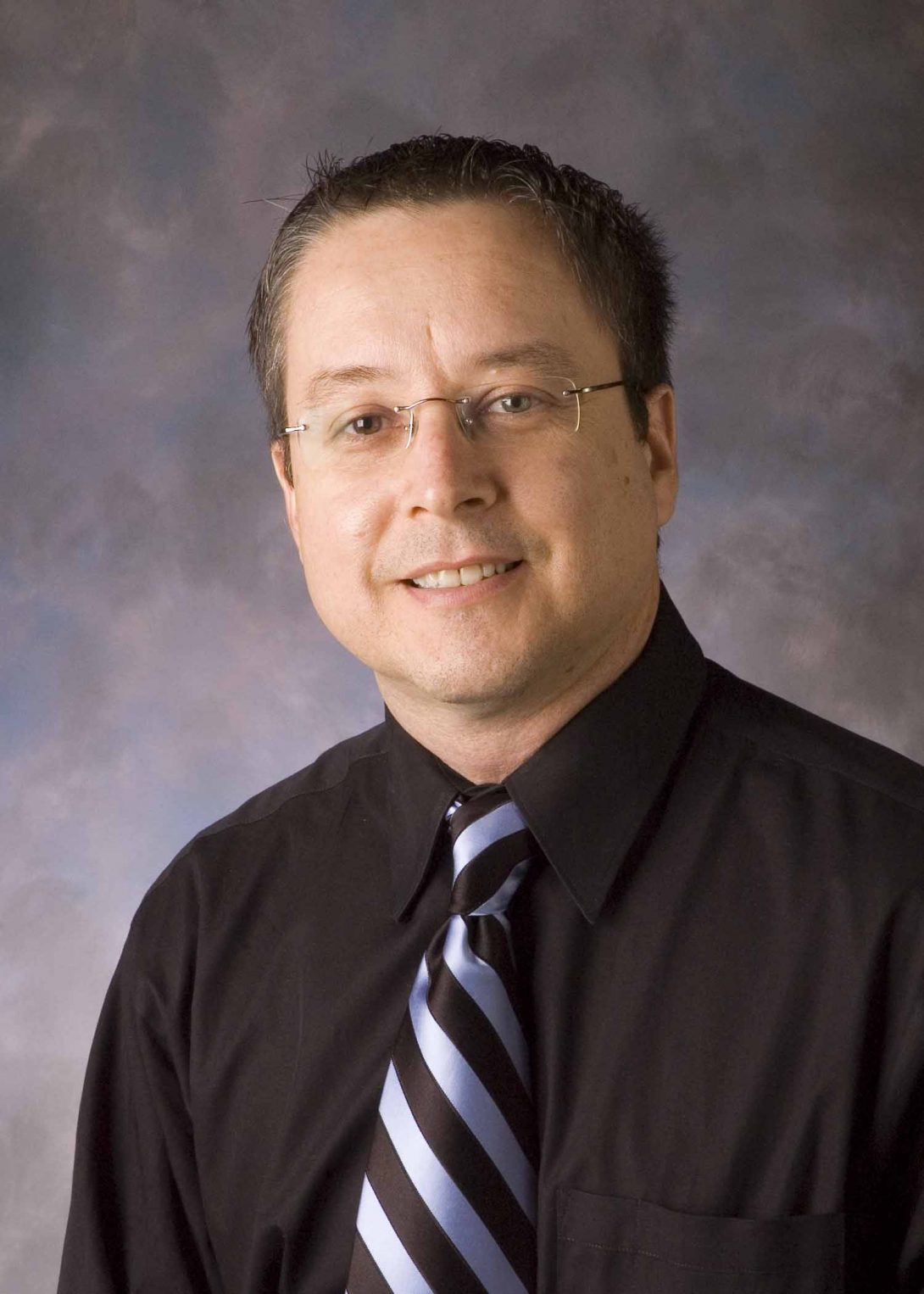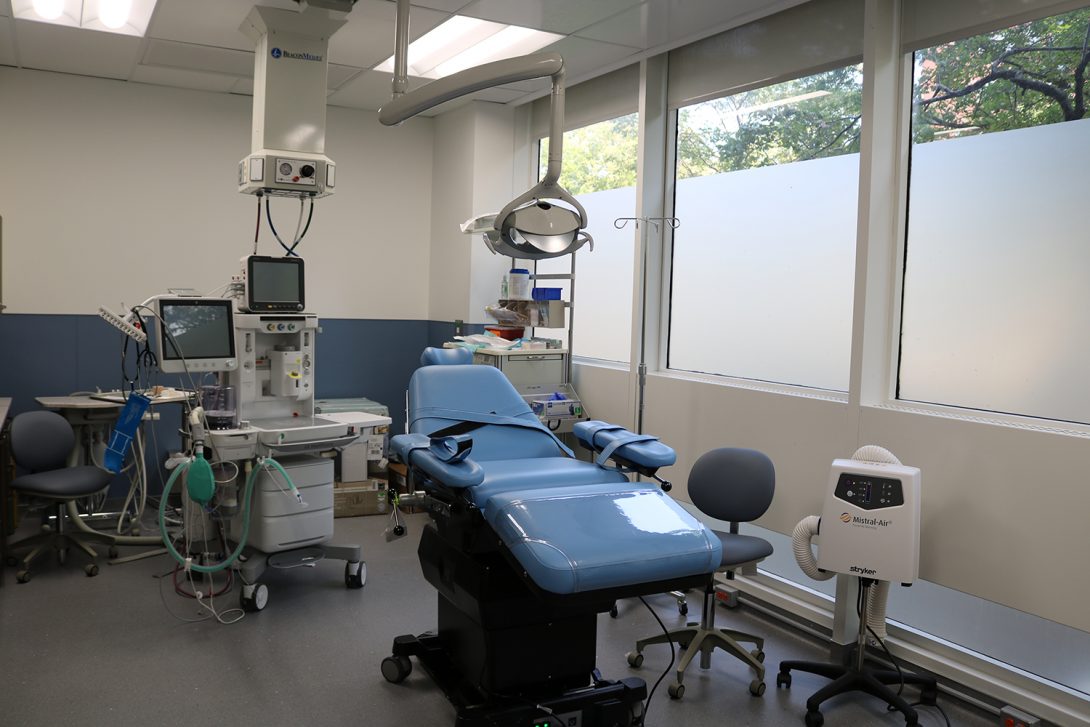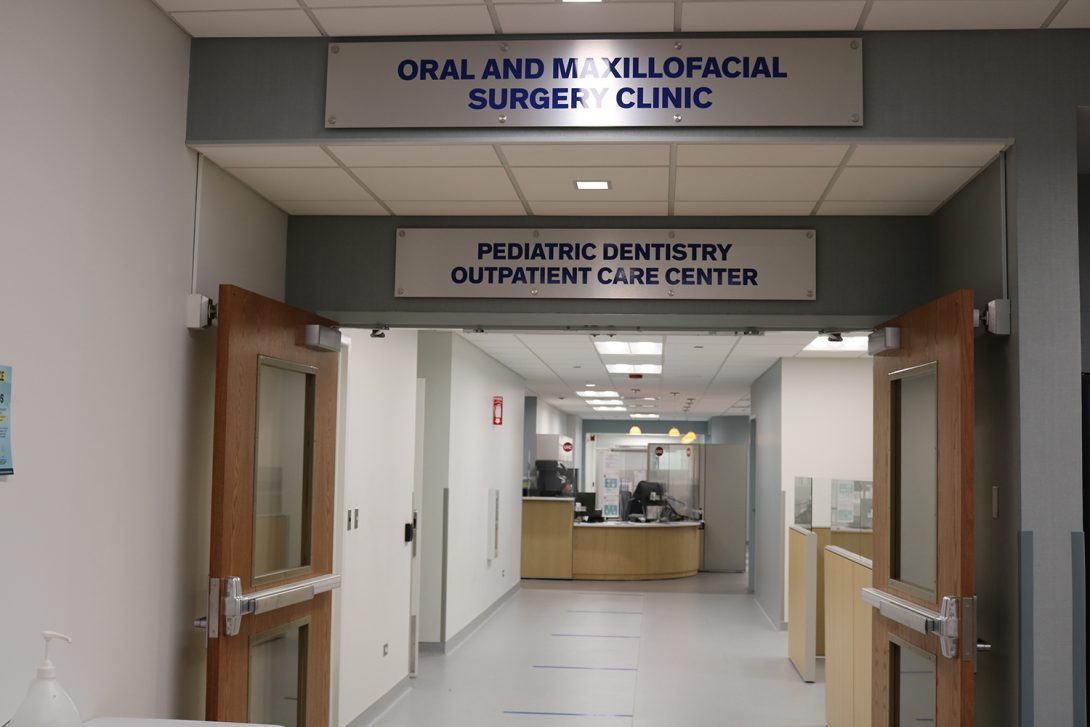Believing in Public Health
College of Dentistry Heading link

UIC’s College of Dentistry sees 10,000 pediatric patients and performs 70,000 procedures annually. Almost 100 percent of them are on public aid. The vast majority are of minority populations, 30 percent have special needs and the average patient age is four years old. The pediatric clinic receives 100 referrals a day. Its wait list for dental care under general anesthesia (GA) is 1,000 children long, which represents a one-year window before an appointment. Most patients would have nowhere else to go without the College of Dentistry.
The reason: Illinois reimbursement for Medicaid is among the lowest in the country, which discourages private practices from caring for low-income families. It also compels hospitals to relinquish its operating room time to more profitable cases than pediatric dental patients who are on public and in need of treatment that requires GA.
“The reality is dental disease has many social determinants,” says Dr. Marcio da Fonseca, Chicago Dental Society Foundation Professor and head of the department of pediatric dentistry. “Many families can’t afford healthy foods, they’re unaware of healthy practices, struggle with language barriers or mental health issues, they aren’t insured or don’t have time for or easy access to a dentist. Everybody, children particularly, has a right to excellent healthcare, but the list of barriers to that care for our patients is immense.”
In the absence of affordable options, these individuals visit emergency rooms all over the state, many of which don’t have a dental provider and are limited in courses of treatment. Throughout this cycle, children suffer tremendous tooth decay, which can lead to cardiac and mental health issues in adulthood. It can affect a child’s daily life—many cannot chew properly, sleep or pay attention at school due to pain and facial swellings caused by dental infections.
Dr. da Foneseca quote Heading link
“We heavily emphasize the importance of public health. We believe in it, see ourselves as an important part of the solution and know if everyone does a little bit it will mean everything for families whose access is limited.”
Part 2 Heading link

In response, the College of Dentistry built its own center to deliver dental care under GA. The Illinois Children’s Healthcare Foundation Pediatric Dentistry Outpatient Care Center (ILCHF PD-OCC), named for its lead donor, opened in fall 2020 to serve children ages 3 to 17 years. In addition to treatment rooms and the ability to administer GA for more complex cases, it offers an inter-professional team consisting of dental faculty and residents, anesthesiologists, a social worker and nurse.
The initiative would not have been possible without $3.3 million in philanthropic support for infrastructure and patient care. The social worker alone, whose salary is partially supported by the Lloyd A. Fry Foundation in Chicago, is essential in helping families enroll in Medicaid, find mental health providers, get medications and navigate other barriers to care. The recovery room nurse’s salary is partially supported by the Visiting Nurses Association Foundation, also in Chicago.
In addition to the lead grant from Illinois Children’s Healthcare Foundation, the College received support from Delta Dental of Illinois Foundation, Coleman Foundation, Healthy Communities Foundation, Oak Park River Forest Community Foundation, the Bisco Charitable Foundation, UIC Division of Specialized Care for Children, and others. Private donors, including Dr. da Fonseca, and Dr. Victoria A. Ursitti ‘95, also gave to create a safe space for pediatric dental care under GA. And, the U.S. Health Resources and Services Administration gave the department two consecutive five-year grants to train their residents in public health, in collaboration with the UIC School of Public Health.
Pediatric dentistry residents who serve patients in the ILCHF PD-OCC are trained to care for these patients in their communities after their schooling. The college’s residents perform research on the social determinants of oral health, the findings of which help providers understand the problem and serve patients more effectively through holistic discussions of the patient’s and family’s health.
Part 3 Heading link

“We show our trainees the importance of being connected to families, and remind them to serve the poor,” says Dr. da Fonseca. “We heavily emphasize the importance of public health. We believe in it, see ourselves as an important part of the solution and know if everyone does a little bit it will mean everything for families whose access is limited.”
Ultimately the College of Dentistry would like to see returning patients without dental disease, and to focus more attention on preventative care. The real hope though, is that the reimbursement rate in Illinois will increase so more private practitioners will provide care to help alleviate the demand placed on the College of Dentistry.
“We want to make sure every kid gets the oral care they need, and this effort is part of a push for social justice and health equity,” says Dr. da Fonseca. “We are always working to find more opportunities for kids to access care, and to educate people about dental disease. We advocate for them tirelessly, and are trying everything we can within our limitations to see as many patients as possible. This is our overall theme.”